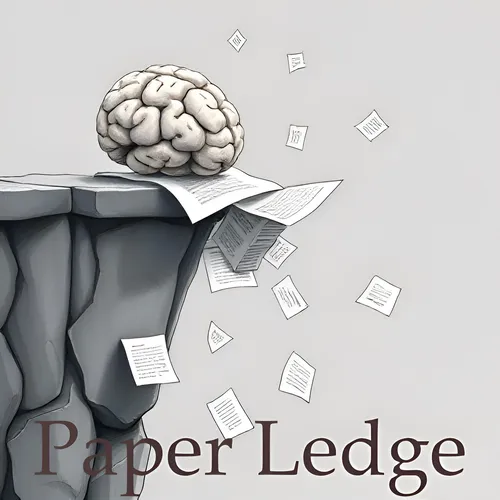Computation and Language - LiveMCP-101 Stress Testing and Diagnosing MCP-enabled Agents on Challenging Queries
- Author
- ernestasposkus
- Published
- Sat 23 Aug 2025
- Episode Link
- https://www.paperledge.com/e/computation-and-language-livemcp-101-stress-testing-and-diagnosing-mcp-enabled-agents-on-challenging-queries/
Hey PaperLedge crew, Ernis here, ready to dive into another fascinating piece of research! Today, we're talking about something super important for the future of AI: making AI agents better at using tools to solve real-world problems.
Think of it like this: you need to plan a surprise birthday party for your best friend. You wouldn't just magically know everything, right? You'd use different tools – your phone to text friends, Google to find party supply stores, a calendar to check availability, and maybe even a budgeting app to keep track of expenses. AI agents need to do the same thing, but digitally!
Now, there's a protocol called the Model Context Protocol (MCP), kind of like a universal language for AI agents to talk to these tools. It's meant to make it easier for them to use different tools together. But... how do we actually test if they're any good at it? That's where this paper comes in.
These researchers created something called LiveMCP-101. Imagine it as a super challenging obstacle course for AI agents. It's a benchmark, a way to measure how well they can handle 101 real-world queries that require using multiple MCP tools in a coordinated way. These queries are carefully designed and tested to be realistic.
Think of questions like: "Find the current stock price of Tesla, then calculate how much profit I would have made if I bought 10 shares last week."
Or, "Search for the highest-rated Italian restaurant in my city, then make a reservation for two people at 7 PM."
These aren't simple tasks! They require the AI to use web search, file operations, math, and data analysis – all working together.
What's really cool is how they're evaluating the AI agents. Instead of just checking if the final answer is correct, they look at the plan the AI creates to solve the problem. It's like judging a chef not just on the taste of the dish, but also on their recipe and cooking process. This is important because in the real world, things change! The restaurant might be fully booked, or the stock price might fluctuate. The AI needs to adapt its plan.
"LiveMCP-101 sets a rigorous standard for evaluating real-world agent capabilities, advancing toward autonomous AI systems that reliably execute complex tasks through tool use."
Here's the kicker: even the best AI models only succeeded in less than 60% of these tasks! That means there's still a lot of room for improvement. The researchers dug into why the AI agents were failing, looking at things like:
Were they choosing the right tools for the job?
Were they using those tools efficiently?
Were they getting confused when things didn't go exactly as planned?
By understanding these failure points, the researchers can give us concrete ideas on how to make these AI agents smarter and more reliable.
So, why does this research matter? Well, imagine a future where AI assistants can truly help us with complex tasks, from managing our finances to planning our vacations. This requires them to be able to use tools effectively and adapt to changing circumstances. This benchmark, LiveMCP-101, is a crucial step towards making that future a reality.
This is relevant to:
Developers: It gives them a clear target to aim for and helps them identify areas for improvement in their AI models.
Researchers: It provides a standardized way to compare different AI approaches and track progress over time.
Everyone else: It gives us a glimpse into the potential of AI and the challenges we need to overcome to unlock its full potential.
Now, a couple of things that jumped out at me while reading this:
How do we ensure that these AI agents are using tools ethically and responsibly? What safeguards need to be in place?
As these AI agents become more sophisticated, how do we prevent them from becoming overly reliant on tools, potentially hindering their own problem-solving abilities?
Food for thought, PaperLedge crew! Until next time, keep learning!
Credit to Paper authors: Ming Yin, Dinghan Shen, Silei Xu, Jianbing Han, Sixun Dong, Mian Zhang, Yebowen Hu, Shujian Liu, Simin Ma, Song Wang, Sathish Reddy Indurthi, Xun Wang, Yiran Chen, Kaiqiang Song
